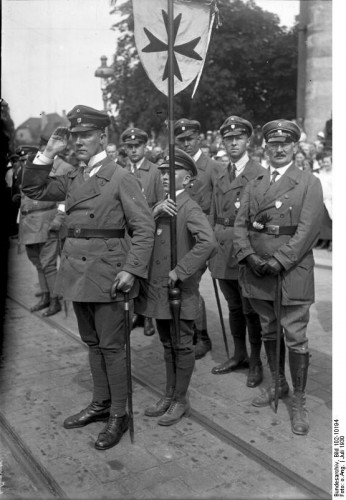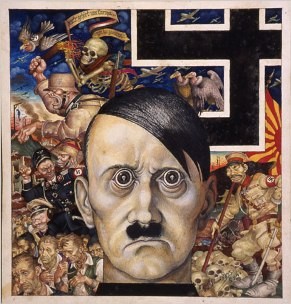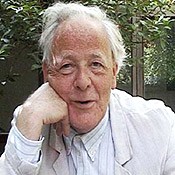Swiftly on beginning my graduate-student career in 1984 I observed that people calling themselves intellectuals – the kind of people whom one met in those days as fellows in graduate humanities programs – tended to be obsessed with topicality and immediacy. Some adhered explicitly to one or another ideology of the a-historical, identifying so strongly with a perceived avant-garde or “cutting edge” that yesterday struck them as contemptible, a thing to be denounced so as to make way for the reformation of existence. But the majority were (and I suppose are) conformists looking for cues about what effective poses they might strike or words employ to signify their being “with it.” To be “with it” in a comparative literature program in California in the mid-1980s meant to be conversant with “theory,” and “theory” in turn meant the latest oracular pronouncement by the Francophone philosophe du jour, as issued almost before the writer wrote it by the those beacons of scholastic responsibility, the university presses. First it was Michel Foucault, then Jacques Derrida, and then Jean-Michel Lyotard. As tomorrow swiftly became yesterday, one sensed a panic to keep up with the horizonless succession of “with-it” gurus in fear that one might appear to others, better informed, as clownishly derrière-garde.
Being reactionary by conviction, I decided on an opposite course: to ignore the avant-garde and to read backwards, as it were, into the archive of forgotten and marginal books that no one deemed respectable by the establishment was reading anymore, and sideways into the contemporarily unorthodox. Part of the providential harvest of that eccentric project, which became a habit, is my acquaintance with two quirky tomes that, despite their oddness, seem to me to stand out as notable achievements of the European mind in the decade before World War Two. One is Count Hermann Keyserling’s Europe (1928); the other is Oswald Spengler’s “other book,” The Hour of Decision (1934). Both speak to us, in the God-forsaken present moment, with no small critical alacrity.
I. Spengler has proved a more durable figure than Keyserling, but the reading audience during the early years of the Weimar Republic would have known Keyserling better than Spengler. People talked about Spengler, but they read Keyserling, whose style was the more accessible. Of Baltic Junker descent, Graf Hermann Alexander Keyserling (1880 – 1946) fared badly in the aftermath of the Great War. He lost title to Rayküll, the hereditary Keyserling estate in Junker-dominated Livonia, when the newly independent Estonian Republic, conspicuously failing to reverse erstwhile Bolshevik policy, expropriated (or rather re-expropriated) the fixed holdings of the German-speaking ex-aristocracy. Keyserling found himself stateless, dispossessed, and in search of a career, his sole remaining asset consisting in his education (higher studies at Dorpat, Heidelberg, and Vienna). Marriage to Otto von Bismarck’s granddaughter (1919) returned Keyserling to something like a station while the success of his first book, The Travel Diary of a Philosopher (1922), stabilized his finances. The Travel Diary, immediately translated into a half-dozen languages including English, remains readable, even fascinating. In 1914, before the outbreak of hostilities, Keyserling had undertaken a global circumnavigation, the lesson of which the Diary, a nation-by-nation account of the world at that moment, meditatively records.
The Diary bespeaks a cosmopolitan-liberal attitude, flavored by a pronounced mystical inclination. Europe, or Das Spektrum Europas in the original German, will strike readers by contrast as an apology (highly qualified) both for nationalism and for individualism. Keyserling’s “spectroscopic analyses” of the various European peoples, in their peculiar individualities as well as in their complex relation to one another, advances the argument that, if Europe ever were to forge administrative unity out of its querulous variety, it would only ever do so by granting full rights and legitimacy to the varieties.
Keyserling favors a modest pan-European government, whose chief function would be the mediation of disputes between the otherwise sovereign nation-states, but characteristically he supplies no details. Keyserling’s notion of a pan-European administration differs in its modesty from many being advanced at the time by such as H. G. Wells, whose speculative utopias – as for example in Men Like Gods – uniformly foresee the dissolution of the nation-state, not just into a pan-European arrangement, but, rather, into a World Republic. Of course, Wells assumes that English, not French or Mandarin, will be the singular unifying tongue of that Republic. The elites will educate people so that anything like a national identity disappears completely in the first captive generation. In the concluding chapter of Europe, in a discussion of national “style,” Keyserling insists on the contrast between his own sense of identity and the “international,” or specifically political type of identity, promulgated by the Communists and Socialists. In the case of the specifically political identity, the subject yields his individuality to merge with the ideological construction. Keyserling reacts to this as to a toxin. “When I analyze my own self-consciousness,” Keyserling poses, “what do I find myself to be?”
Keyserling answers: “First and foremost, I am myself; second, an aristocrat; third, a Keyserling; fourth, a Westerner; fifth, a European; sixth, a Balt; seventh, a German; eighth, a Russian; ninth, a Frenchman – yes, a Frenchman, for the years during which France was my teacher influenced my ego deeply.” We note that politics never enters into it. Reading the autobiographical passages of Europe, especially those in the chapter on “The Baltic States,” one gets the impression, incidentally, that belonging to Baltdom ranks as rather more important for Keyserling’s self-assessment than its place in his explicit hierarchy of identities would suggest.
Europe deploys a well-thought-out dialectic of individual and national character, whose subtleties Keyserling presents in his “Introduction.” In the same “Introduction,” the author also sets forth his case for the absolute legitimacy of judging nations and cultures against one another. Keyserling fixes over the whole of Europe an epigraph drawn from Paul to the Romans: “For all have sinned and come short of the glory of God.” His dialectic follows from his conviction of imperfectness both of the basic human nature and of human arrangements for the conduct of political existence.
Keyserling can note, by way of a widely applicable example, that the Latin subject’s sense of his status as “civis Romanus… awoke in him as an individual a profound sense of self-discipline and obligation”; Keyserling can also assert that, “The man who attempts to deduce his own worth from the fact that he is a member of a particular group is thinking askew, and, besides presenting an absurd spectacle, gets himself disliked.” The two statements imply, for Keyserling, no contradiction. In the spirit of Saint Paul, Keyserling indeed hazards the sweeping – and, to some, disturbing – rule that, “in not a single nation is the national element, as such, bound up with anything of worth” because “the gifts of every nation are balanced by complementary defects.” As Keyserling sees things, “the only value in the national spirit is that it may serve as the basic material, as the principle of form, for the individual.” In the ironic consequence, as Keyserling closes out his syllogism, “it is for this very reason that every nation instinctively measures its standing by the number and quality of world-important figures which it has produced.”
Whereas on the one hand in Keyserling’s epigrammatic judgment, “the individual and the unique are more than the nation, be it one’s own or another,” on the other hand “value and mass have absolutely nothing to do with each other.” Apropos of Keyserling’s disdain for the “mass,” he notes that, “Christ preached love of one’s neighbor just because he did not have in mind philanthropy and democracy.”
Invoking Hebrew theology and German music as examples, Keyserling argues that: “A nation can achieve significance for humanity only in certain respects; namely, those wherein its special aptitudes fit it to become the appointed organ for all humanity.” Thus to evoke “abstract considerations of justice” is for Keyserling a “useless” exercise flying in the face of a “cosmic truth.” Given the central role of the individual in Keyserling’s scheme, readers will register little surprise when, in Europe, the author insists that the individual not only possesses the right, but indeed lives under an ethical imperative, to render public judgment on collectivities, with reference to a metaphysical hierarchy of values. “Strength and beauty are higher, in the absolute sense, than weakness and ugliness; superiority is higher, too, in the absolute sense, than inferiority, and the aristocratic is higher than the plebieian.” Europe offers, among other pleasures, Keyserling’s giving himself “free rein” to articulate such judgments in a spirit of “inner liberation,” in which the cultured reader will surely participate, treating everyone with equal severity and irony.
Keyserling admits, “There are some who will have for this book nothing but resentment.” He hopes indeed that “all Pharisees, all Philistines, all nitwits, the bourgeois, the humorless, the thick-witted, will be deeply, thoroughly hurt.” These are words almost more apt – but certainly more apt, supremely apt – for Anno Domine 2009 than for 1928; but one nevertheless presupposes their legitimacy in context. Keyserling reminds his readers in advance that he will have imposed the same criteria in assessing “my own people,” meaning the Balts, as in assessing others.
II. One can only sample the wares, so to speak, in a summary of Europe, keeping in mind Keyserling’s warning that he must necessarily offend the easily offended. Readers will need to explore Europe on their own to discover what Keyserling has to say about Netherlanders, Hungarians, Romanians, Swedes, and Swiss. What follows makes reference only to the chapters on England, France, and Germany. Does the order of the chapters imply even the most modest of hierarchies, with the first chapter taking up the analysis of England? Keyserling must have recognized the importance of his Anglophone audience to his popularity. His treatment of the English, while unsparing in principle, does seem warmed somewhat by fondness. For Keyserling, that odd phenomenon of “Anglomania” (nowadays one would say “Anglophilia”) tells us something, by way of indirection, about its object. “One nation sees itself mirrored in the other, not as it is, but as it would like to be; just as, during the World War, every nation attributed to its enemy the worst features of its own unconscious.”
On England. With characteristic nakedness of statement, Keyserling credits the Anglo-Saxon, not with “intelligence” but rather with “instinct.” According to Keyserling, “the whole [English] nation… has an unconquerable prejudice against thinking, and, above all, against any insistence on intellectual problems.” Being creatures of instinct, Englishmen act with certitude or at least with the appearance of certitude. It is this certitude, translated pragmatically as the habit of taking bold action, which others so admire, even while misunderstanding it, in the Anglo-Saxon spirit. “The Englishman… is an animal-man”; and “at the lowest end of the scale he is the horse-man, with corresponding equine features.” The aversion to ratiocination explains the British Empire, which “simply grew up, with no intention on anybody’s part,” to be governed by the colonial-administrator type, who “rarely thinks of anything but food, drink, sport, and, if he is young, flirtations.”
More than God, whatever his sectarian dispensation, Keyserling’s Englishman worships “the rules of the game.” Thus his “loyalty to one’s land, one’s party, one’s class, one’s prejudices… the first law” so that “the question of absolute value is beside the point.” From these inclinations stem “British empiricism, so despised by the French, which enables the British successfully to anticipate the crises precipitated by the spirit of the times.” Yet if the Englishman were ungifted intellectually, he would be, in Keyserling’s estimate, “all the more gifted psychologically,” with the consequence that the Briton possesses “skill in handling human material [that] is extraordinary.” Nestling at the core of that gift is the principle, which Keyserling classifies as “primitive,” that one should “live and let live.” The English sense of individuality and of rights is likewise primitive, in the positive sense of being a reversion, against the modern tide, to the atheling-egotism of the Beowulf heroes and King Alfred. More than any other European nation, England has preserved medieval customs that might prove healthily anodyne to the deculturation inherent in modernity. Yet Keyserling fears that the English will fail to preserve custom and will plunge into “the Mass Age” more thoroughly than other nations, just as the offshoot American nation, in his judgment, had already done.
On France. Chortling Gallic readers need only to have turned the page to receive their own stinging dose of Keyserling’s patented forthrightness. It starts out flatteringly enough. Whereas the Englishman lives according to instinct, the Frenchman, taking him in the generality, behaves like a “universally intelligible life-form”; one sees in him a creature of “the conscious” and of “the intellect,” whose rationality has concocted, in the Gallic idiom, “a perfect language for itself.” So it is that “all Occidental ideology, whenever it can be expressed at all in French, finds in the body of that language its most intelligible expression.” Nevertheless, “however clear the intelligence of the Frenchman may be, his self-consciousness is emotional rather than intellectual,” being as such, “easily and violently aroused,” with the emotion itself its “own ultimate justification.” From Parisian emotiveness, from the esteem in which others regard France, and using the intellectual precision of the French language, comes the least attractive of Gallic qualities: “The Frenchman… has always seen in his opponent the enemy of civilization.” Just that inclination emerged in 1914, but the ferocity of the Jacobins showed its presence at the birth of the French Republic.
As Keyserling sees it, however, France is not a dynamic, but an essentially conservative, nation, which is what has enabled it to survive its endless cycle of revolutions. The real role of France after 1918 should not have been, as the French took it on themselves to do through the League of Nations, to “restore” – that is, to transform – Europe after some rational pattern; it should have been to conserve the precious vestiges of pre-Revolutionary culture. “The French are par excellence the culture nation of Europe.”
On Germany. On the topic of Germany, Keyserling begins by quoting his old friend Count Benckendorff, the Czar’s ambassador in London: “Ne dites pas les allemands; il n’y a que des allemands.” (“Speak not of the Germans; there are only Germans.”) According to Keyserling, “The German exists only from the viewpoint of others”; yet not quite, as one can make applicable generalizations. A German is an “object creature” whose “life-element lies, once and for all, in that which, externally, emerges most typically in the cult of the object.” A German is by nature therefore an expert, dedicated to his own expertise and to expertise qua itself as the principle of orderly existence. Keyserling avails himself of a standing joke: “If there were two gates, on the first of which was inscribed To Heaven, and on the other To Lectures about Heaven, all Germans would make for the second.” German interest in objects and objectives gives rise to German technical prodigality – the German primacy in precision Engineering and the mechanical systematization of everyday life. Despite its orientation to the objects, the German mentality suffers from “unreality.” How so?
“The personal element in man,” Keyserling remarks, “declines in direct proportion as his consciousness becomes centered in detached, externalized ideas; and for those who have to deal with him it really becomes impossible to know what they can expect and what they can rely on.” Keyserling does not foresee the collapse of the Weimar Republic and the catastrophe of the dictatorship, but he does, in the just-quoted sentence, see the cause of both.
The concluding chapter of Europe attempts a summing-up with a forecast. Keyserling writes: “Europe is emerging as a unity because, faced at closer range by an overwhelming non-European humanity, the things which Europeans have in common are becoming more significant than those which divide them, and thus new factors are beginning to predominate over old ones in the common consciousness.” But, in compliance with his dialectic, Keyserling issues a warning. The unification of the European nations as they confront the non-European must avoid the result of producing “frantic Pan-Europeans” who, forgetting the specificity of the constituent nationalities, “understand each other not better, but worse than before.” If that were to happen, Europe would have been effectively “Americanized.” Keyserling concludes on an ominous note: “More than one culture has died out before reaching full blossom. Atlantis, the Gondwana continent, went the way of death. Infinite is human stupidity, human slothfulness.”
III. Keyserling and Oswald Spengler (1880 – 1936) never exactly knew each other; rather, they lived in standoffish awareness of each other, with Keyserling playing the more extroverted and Spengler the more introverted role. In February 1922, Keyserling wrote to Spengler from Darmstadt, enclosing his review of The Decline of the West, and inviting Spengler to participate in a “School of Wisdom” seminar to be held at the Count’s Darmstadt house. (The “School of Wisdom” was Keyserling’s lecture-foundation, which operated from 1920 until the Nazi regime shut it down in 1933.) Spengler declined the invitation on the grounds that the audience was likely to be “young people stuffed with theoretical learning.” Spengler remarked to Keyserling in his reply, that, “by wisdom I understand something that one obtains after decades of hard practical work, quite apart from learning.” Spengler makes his adieu by promising to have his publisher send the new edition of The Decline to his correspondent. The tone of Keyserling’s invitation perhaps abraded Spengler’s sense of propriety; Keyserling does presume a willingness to cooperate that, to Spengler, might have seemed a bit too peremptory. Keyserling nevertheless rightly presupposed that he shared many judgments with Spengler – just not the judgment concerning the obligatory status of a social invitation from Keyserling.
The Hour of Decision, like everything that Spengler authored, is a rich mine of observation and insight, difficult to summarize, mainly because it communicates so thoroughly with the monumental Decline, to which it forms an epilogue. The core of The Hour is its diptych of concluding chapters on what Spengler calls “The White World-Revolution” and “The Coloured World-Revolution.” As in the case of Keyserling’s ironic forthrightness, only more so, Spengler’s plain speaking makes him consummately politically incorrect. The Hitlerian regime would suppress The Hour just as it suppressed Keyserling’s Darmstadt lecture-institute. Both were unforgivably heterodox in the totalitarian context. Spengler, writing in the onset of “die Nazizeit,” saw nothing particularly new in the dire developments of the day, only an intensification of the familiar Tendenz. The West’s terminal crisis had been in progress already for a hundred chaotic years; the great spectacle of disintegration would only continue, not merely in the external world of institutions and forms, but also in the internal world of spiritual integrity.
Conjuring the image of the modern megalopolis and echoing Ortega’s alarm over the masses, Spengler writes, “A pile of atoms is no more alive than a single one.” Crudely quantitative in its mental processes, the modern mass subject equates “the material product of economic activity” with “civilization and history.” Spengler insists that economics is merely a sleight-of-hand discourse for disguising the real nature of the “catastrophe” that has overcome the West, which is a failure of cultural nerve.
In The Hour, Spengler builds on notions he had developed in The Decline, particularly the idea that the West has ceased to be a “Culture,” a healthy, vital thing, and has entered into the moribund phase of its life, or what Spengler calls “Civilization.” Into the megalopolis, “this world of stone and petrifaction,” writes Spengler, “flock ever-growing crowds of peasant folk uprooted from the land, the ‘masses’ in the terrifying sense, formless human sand from which artificial and therefore fleeting figures can be kneaded.” Spengler stresses the formlessness of “Civilization,” in which “the instinct for the permanence of family and race” stands abolished. Where “Culture is growth,” and “an abundance of children,” “Civilization” is “cold intelligence… the mere intelligence of the day, of the daily papers, ephemeral literature, and national assemblies,” with no urge to prolong itself as settled custom, well-bred offspring, or a posterity that honors tradition. The “White World-Revolution” consists in the triumph of “the mob, the underworld in every sense.”
The mob, which sees everything from below, hates refinement and despises anything permanent. The masses want “liberation from all… bonds [and] from every kind of form and custom, from all the people whose mode of life they feel in their dull fury to be superior.” Hence the appeal of egalitarianism to the masses. But, as Spengler argues, egalitarianism is really only a slogan, a euphemism. The real trend is “Nihilism.”
The pattern of “Nihilism” emerged in the French Revolution, with its vocabulary of leveling, as in the radically politicizing etiquette of “citoyen” and in the supposedly universal demand for “Liberty, Equality, and Fraternity.” “The central demand of political liberalism,” writes Spengler, consists in “the desire to be free from the ethical restrictions of the Old Culture.” Yet as Spengler insists: “The demand was anything but universal; it was only called so by the ranters and writers who lived by it and sought to further private aims through this freedom.” We see this identical pattern today in the various concocted emergencies and so-called universal demands that the current thoroughly liberal-nihilistic regime in the United States trots out serially to justify its consolidation of power, whereby it ceaselessly attacks what remains in the American body-politic of form and custom. In Spengler’s aphorism: “Active liberalism progresses from Jacobinism to Bolshevism logically.”
In Spengler’s judgment, moreover, one would make a mistake in equating Bolshevism, as people would have done in the 1930s, uniquely with the Soviet Union. “Actually [Bolshevism] was born in Western Europe, and born indeed of logical necessity as the last phase of the liberal democracy of 1770 – which is to say, of the presumptuous intention to control living history by paper systems and ideals.”
When Spengler remarks on the theme of tolerance (so-called) in liberalism-nihilism, one thinks again of the existing situation in Europe and North America the first decade of the Twenty-First Century. Inherent to form is its rigorous exclusion of the formless. In its aggressive demand for inclusion of the rightly excluded, which belongs to its destructive impetus, the liberal-nihilistic regime works actively to de-stigmatize anti-social behavior. Thus under liberalism-nihilism “tolerance is extended,” by self-denominating representatives of the people, “to the destructive forces, not demanded by them.” Of course, the “destructive forces” do not refuse the extension. On historical analogy, Spengler refers to this as “the Gracchan method.” When once, as had already happened in Europe in Spengler’s time, “the concept of the proletariat [had] been accepted by the middle classes,” then the formula for cultural suicide had at last all of its ingredients in place. “I am aware,” writes Spengler, “that most people will refuse with horror to admit that this irrevocable crashing of everything that centuries have built up was intentional, the result of deliberate working to that end… But it is so.”
IV. Like another, later analyst of modernity in its agony, Eric Voegelin, Spengler sees at the root of Liberalism-Nihilism the perversion of a religious idea. “All Communist systems in the West are in fact derived from Christian theological thought: More’s Utopia, the Sun-State of the Dominica Campanella, the doctrines of Luther’s disciples Karlstadt and Thomas Münzer, and Fichte’s state-socialism… Christian theology is the grandmother of Bolshevism.” The materialism – which is again a type of nihilism – of Marxism and socialism never contradicts the case for liberalism-nihilism as a perversion of Gospel themes. “As soon as one mixes up the concepts of poverty, hunger, distress, work, and wages (with the moral undertone of rich and poor, right and wrong) and is led thereby to join in the social and economic demands of the proletarian sort – that is, money demands – one is a materialist.” But, this being Spengler’s point, one may have the belief-attitude with respect to one’s materialist doctrines that the fanatic of God has for his mental idol, with the concomitant fierceness and ruthlessness. The end of real Christianity is “renunciation.” With reference to the sentence of Adam, writes Spengler, the Gospel tells men, “do not regard this hard meaning of life as misery and seek to circumvent it by party politics.”
In a precise description of the modern, immigration-friendly, general-welfare state, Spengler remarks that “for proletarian election propaganda,” an opposite principle to the Gospel one is required: “The materialist prefers to eat the bread that others have earned in the sweat of their face.” When the Gracchan rabble dominates from below so that the demagogues might manipulate from above, then it will come to pass that “the parasitic egoism of inferior minds, who regard the economic life of other people, and that of the whole, as an object from which to squeeze with the least possible exertion the greatest possible enjoyment” will seek its bestial end in “panem et circenses.” Once the majority descends to vulgar consumption through extortion – and through a mere pretence of work under the welfare-umbrella of “the political wage” – then the society has doomed itself. It can only lurch in the direction of its inevitable demise. Even the keen-eyed will not want to confront reality. They will, as Spengler writes, “refuse in horror” to believe what they see. Spengler might have been thinking about a letter from his correspondent Roderich Schlubach dated 9 October 1931. Schlubach writes: “I frankly admit that much of what you prophesied [in The Decline] has taken place. The decline of the West seems to be at hand, and still I do not believe in an end of the world, only in an entire change in our circumstances.”
That is “The White World-Revolution” – the triumph of rabble-envy, the destruction of form, childlessness, and the childishness of mass entertainments. Indeed, “an entire change in our circumstances,” as Schlubach says, not grasping that his words mean the opposite of what he intends. What of “The Coloured World-Revolution”? Keyserling had admonished, in the concluding chapter of Europe, that Europe in its chafing unity would come under threat from the nearby non-European world. In Spengler’s historical theory, the threat of external barbarism always coincides with the passage of the “Culture” into its deliquescent rabble-stage – the stage that the Decline-author ironically calls “Civilization.” Earlier, in the robustness of the culture-stage, the ascendant people inevitably imposes itself on neighboring and foreign peoples whose levels of social complexity and technical sophistication are lower and who cannot effectively resist encroachment. Spengler emphasizes that it cannot be otherwise. The people of the less-developed society gradually grow conscious of a difference, which the emergent demagogue-class of the more-developed society in its liberal paroxysm swiftly encourages them to see as an injustice.
Thus, Spengler asserts, “the White Revolution since 1770 has been preparing the soil for the Coloured one.” The process has followed this course:
The literature of the English liberals like Mill and Spencer… supplied the “world outlook” to the higher schools of India. And thence the way to Marx was easy for the young reformers themselves to find. Sun Yat Sen, the leader of the Chinese Revolution, found it in America. And out of it all there arose a revolutionary literature of which the Radicalism puts that of Marx and Borodin to shame.
Spengler, who was consciously and deliberately distancing himself from the National Socialists, reminds his readers that he is not “speaking of race… in the sense in which it is the fashion among anti-Semites in Europe and America today.” He is simply comparing the attitude to life of existing peoples. The Western nations compete for dominance with non-Western nations whether they want to do so or not. The non-Western nations, like Japan, act in bold accord with ideologies that cast the West in a scapegoat role, and that are overtly racist. The West has enemies. It cannot choose not to be in enmity with them; they choose enmity peremptorily. The West can either stand up to its assailants or succumb. When Spengler turns to demography, to his tally of Western birth-replacement deficits and burgeoning populations elsewhere, his discourse strikes us, not as dated, but as entirely contemporary. “The women’s emancipation of Ibsen’s time wanted, not freedom from the husband, but freedom from the child, from the burden of children, just as men’s emancipation in the same period signified freedom from the duties towards family, nation, and State.”
The attitude of the European middle class, judging by its failure to oppose the vulgarization of society and again by its unwillingness to perpetuate itself in offspring, is one of abdication before the forces of nothingness – this is true whether it is 1934 or 2009. Like the proletariat, the bourgeoisie then and now hungers only for panem et circenses, or, as we so quaintly call it in present-day America, the consumer lifestyle. Spengler predicts, in The Hour, that the non-Western world will grow increasingly hostile and predatory towards the West, seeing the decadent nations as easy pickings and seeking opportunities to assault and humiliate the bitterly resented other. Spengler believes that the nihilistic tendency of Western revolutionaries will merge with the similar tendencies of their non-Western, colonial or ex-colonial counterparts and that the internal and external masses will cooperate in a common destructive project. What else was the bizarre alliance between the Nazi regime in Berlin and the Bushidoregime in Tokyo? Or between Heinrich Himmler and the Grand Mufti of Jerusalem? Just this intimate cooperation of homebred totalitarians with inassimilable fellah-collaborators seems today to be the case, for example, in Great Britain and Sweden – and to no little extent, not merely with respect to illegal Mexican immigration, in the United States as well.
The Hour of Decision remains a shocking book. It will shock even conservatives because they cannot have avoided being assimilated in some degree to the prevailing dogma about what one may or may not say. One can imagine the reaction of contemporary liberals to the book if only they knew anything about it: spitting, blood-shot indignation. Contemporary liberals have already banned almost the entirety of Spengler’s vocabulary under the strictures of self-abasing multiculturalist dhimmi-mentality. The Hour is also a radical book, not least in its notion, also present in both volumes of The Decline that, the crisis of the West, which began already in the Eighteenth Century, would likely play itself out right through the end of the Twentieth Century and beyond. The disquiet that comes across at the end of Keyserling’s Europe, which appeared as we recall in 1928, asserts itself as greatly heightened apprehension in the final chapter of The Hour, which appeared in German in 1934 and in English in 1936, after Goebbels had suppressed further publication of the German edition. The National Socialists, like modern liberals, could not bear to be identified by a strong voice, as who and what they actually were.



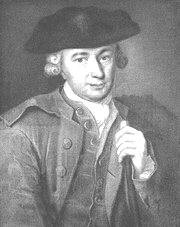

 del.icio.us
del.icio.us
 Digg
Digg
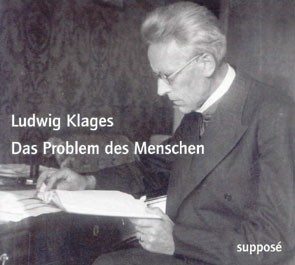
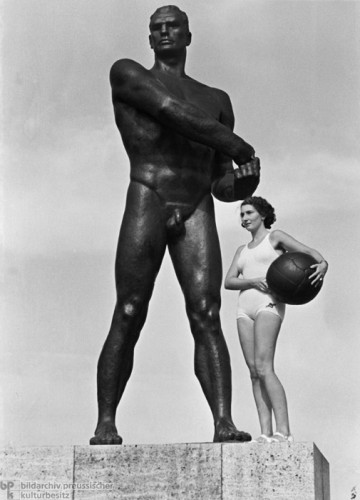
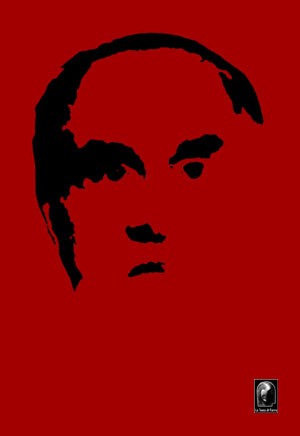


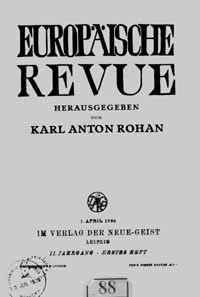
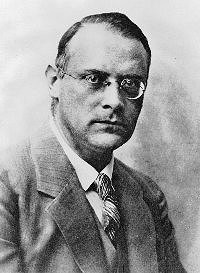
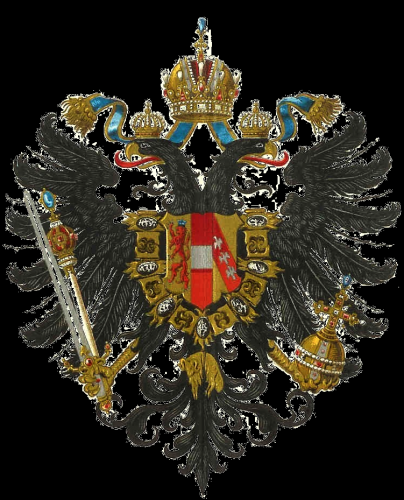

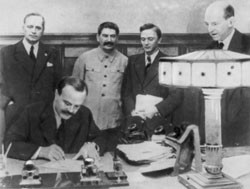
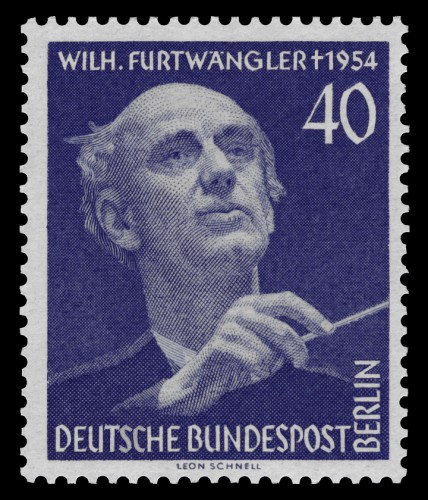

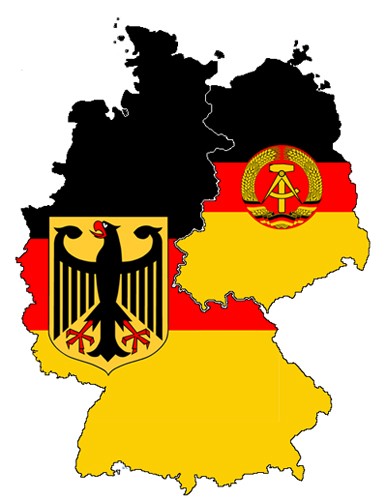
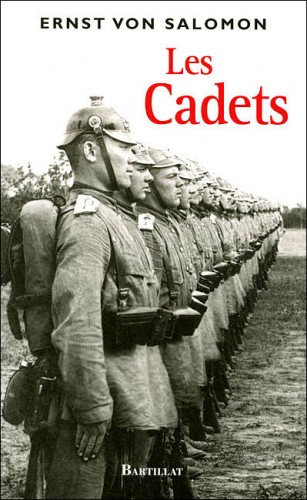




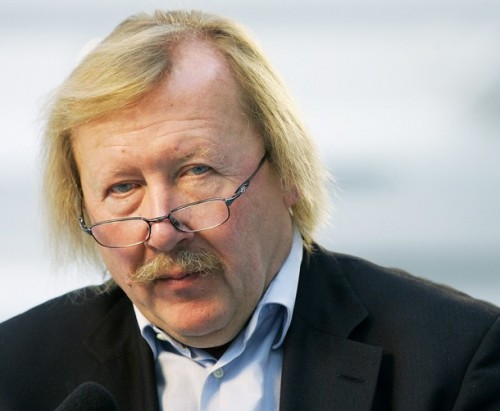
 Im agitatorischen Stil kommt der unter Herausgeberschaft von Hartmut Plaas’ 1928 erschienene Sammelband: „Wir klagen an! Nationalisten in den Kerkern der Bourgeoisie“ daher. Als einen der ersten Faksimiles druckte der Uwe-Berg-Verlag die Schrift in seiner Reihe „Quellentexte zur Konservativen Revolution“ unter der Kategorie „Die Nationalrevolutionäre“ ab. Was der Einband nicht verrät: der Herausgeber wurde 1944 im Zuge des Stauffenberg-Attentats hingerichtet.
Im agitatorischen Stil kommt der unter Herausgeberschaft von Hartmut Plaas’ 1928 erschienene Sammelband: „Wir klagen an! Nationalisten in den Kerkern der Bourgeoisie“ daher. Als einen der ersten Faksimiles druckte der Uwe-Berg-Verlag die Schrift in seiner Reihe „Quellentexte zur Konservativen Revolution“ unter der Kategorie „Die Nationalrevolutionäre“ ab. Was der Einband nicht verrät: der Herausgeber wurde 1944 im Zuge des Stauffenberg-Attentats hingerichtet. mit ihr! Ihr führet Krieg und heulet derweil um Frieden! Wir klagen euch an.“ Die Zeilen lesen sich oftmals als prägende Leidensgeschichten aus den Gefängnissen der Weimarer Republik. Aber auch eine gewisse Zynik spricht aus vielen Zeilen. So etwa hier bei Roderich Zoeller: „Und ich verließ nach sechsmonatigem Nachdenken hinter Gitterfenstern das Gefängnis natürlich als sittlich gebesserter Mensch.“
mit ihr! Ihr führet Krieg und heulet derweil um Frieden! Wir klagen euch an.“ Die Zeilen lesen sich oftmals als prägende Leidensgeschichten aus den Gefängnissen der Weimarer Republik. Aber auch eine gewisse Zynik spricht aus vielen Zeilen. So etwa hier bei Roderich Zoeller: „Und ich verließ nach sechsmonatigem Nachdenken hinter Gitterfenstern das Gefängnis natürlich als sittlich gebesserter Mensch.“